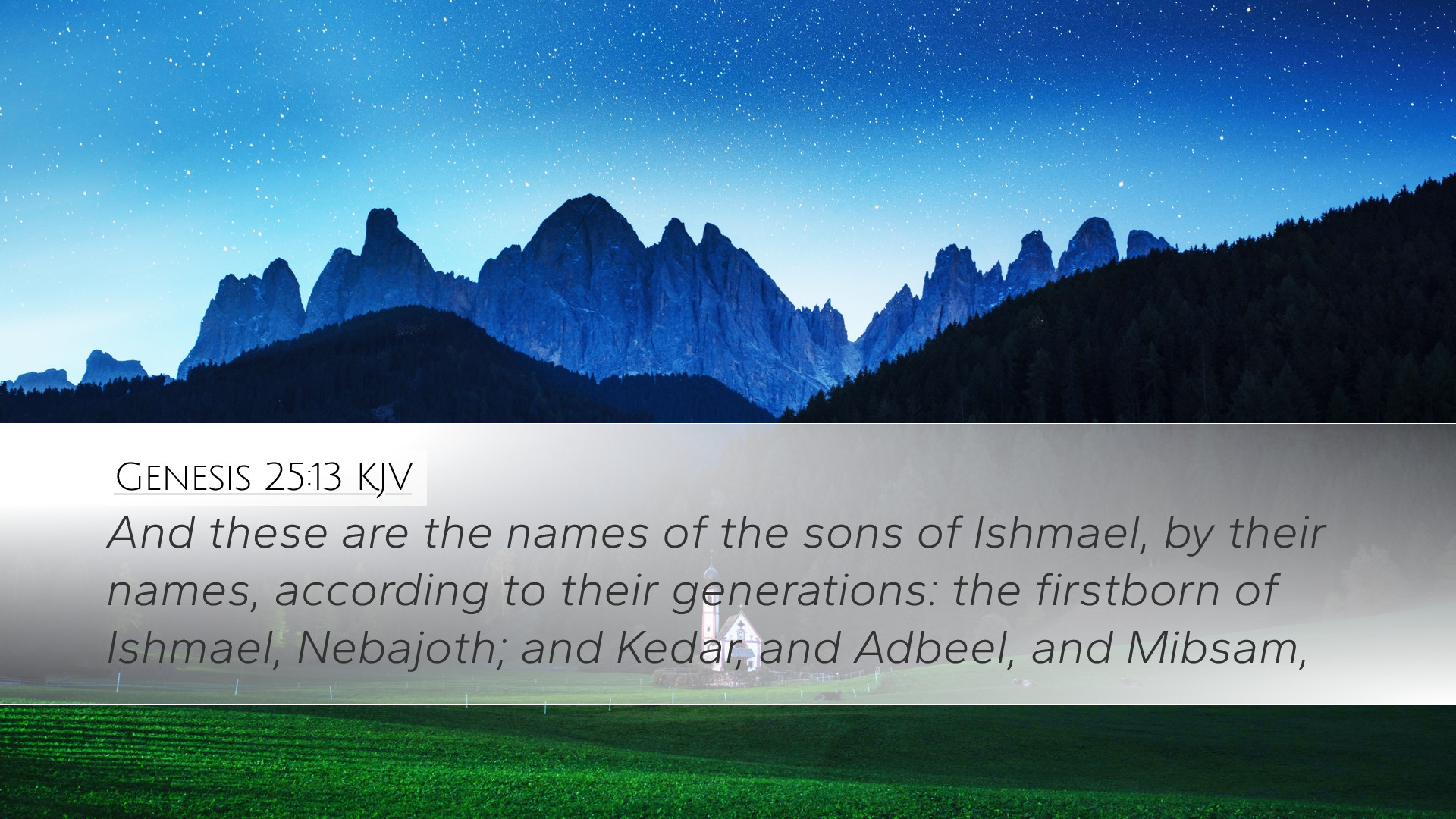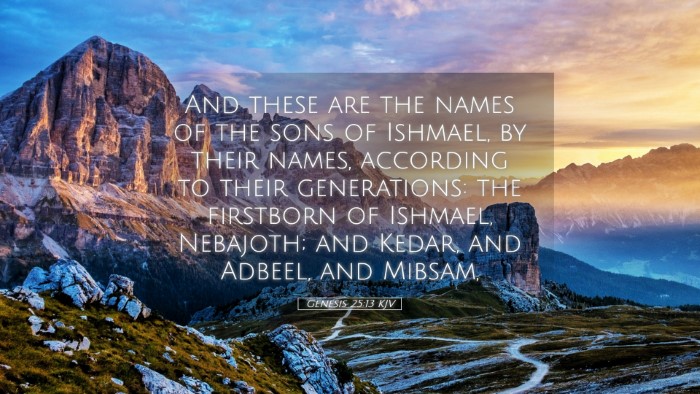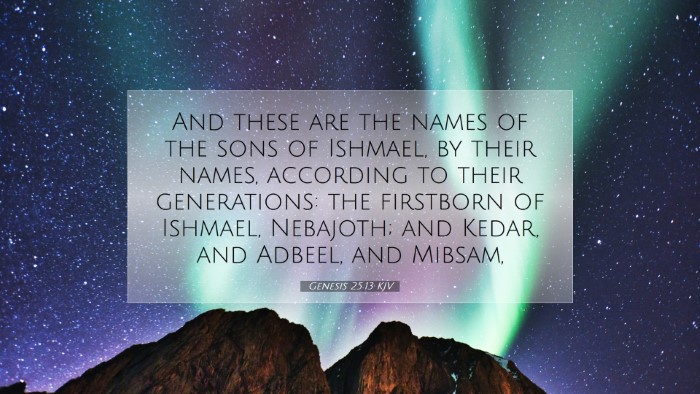Genesis 25:13 - Commentary and Insights
Verse Overview: Genesis 25:13 states, "And these are the names of the children of Ishmael, by their names, according to their generations: the firstborn of Ishmael, Nebajoth; and Kedar, and Adbeel, and Mibsam," (KJV). This verse introduces the descendants of Ishmael, emphasizing God's promise and the fulfillment of covenantal blessings even outside the direct line of Isaac.
Context and Importance
The narratives surrounding Ishmael and his descendants are critical to understanding the broader themes of Genesis, particularly relating to God's choice and promise. Ishmael, the son of Abraham and Hagar, holds a significant place in biblical history as the father of a great nation, reflecting God’s mercy and grace in blessing those who are not part of the covenant directly through Isaac.
Commentary Insights
Various public domain commentaries offer profound insights into this passage. Commentary from Matthew Henry, Adam Clarke, and Albert Barnes sheds light on the theological implications of Ishmael's lineage.
Matthew Henry's Commentary
Matthew Henry emphasizes the fulfillment of God's promise to Hagar that her son would become a great nation (Genesis 16:10). He notes that Ishmael's descendants played a notable role in the world and their lives intersected significantly with the covenant people. Henry remarks that the naming of Ishmael's sons indicates the continuation of a legacy and the acknowledgment of God's providence over Ishmael's life:
- The Role of Names: Names in Scripture often reflect character or destiny. Ishmael’s sons, such as Kedar and Mibsam, are not just persons but represent tribes that would become prominent in history.
- God's Mercy: Though Ishmael was not the child of promise like Isaac, God's blessings still rest upon him, showing that divine favor extends beyond one lineage.
- Theological Reflection: This passage invites readers to consider the inclusivity of God’s plan and how His promises can unfold through various means and peoples.
Albert Barnes' Commentary
Albert Barnes provides a meticulous examination of the descendants of Ishmael while noting the geographical and sociological aspects. He points out that the descendants listed in this verse reflect the tribes that would inhabit the Arabian Peninsula:
- Historical Significance: Barnes identifies these names with the tribes that arose and how they interacted with Israel throughout biblical history. This context adds depth to understanding ancient Near Eastern dynamics.
- Prophetic Insight: Barnes encourages readers to see how the generations of Ishmael foreshadow future tensions and interactions between Israel and the Arab peoples.
- The Breach of Covenant: Though Ishmael is blessed, the differences in lineage (Isaac vs. Ishmael) also create a unique historical narrative that shapes the identity of future nations.
Adam Clarke's Commentary
Adam Clarke's approach provides a linguistic and etymological exploration of the names, revealing insights into the cultural background of Ishmael's descendants:
- Name Analysis: Clarke emphasizes that understanding the meanings behind these names can reveal characteristics of the tribes, such as Kedar, meaning "dark," which might suggest attributes of the people or their environment.
- Cultural Context: Clarke notes that the Arabian tribes were known for their skills, particularly in trade and warfare, which shaped the socio-economic landscapes of their time.
- Divine Provision: He reflects on how God’s provision was seen through these generational lines, establishing that God remained involved in Ishmael’s descendants despite the covenant focus on Isaac.
Theological Implications
The discussion of Ishmael’s lineage leads to several important theological reflections for pastors, students, and scholars alike:
- God's Sovereignty: Ishmael's descendants were not part of the primary covenant but still received blessings, suggesting that God's sovereignty transcends human choices and cultural boundaries.
- Inclusivity of God's Kingdom: This passage can inspire believers to recognize that God's kingdom draws from diverse peoples, which reflects the universal scope of the Gospel.
- Historical Continuity: Understanding the connection between Ishmael's descendants and modern nations fosters a deeper appreciation for the historical narrative of Scripture.
Conclusion
Genesis 25:13 serves as a rich text for reflection. By examining the names and genealogies of Ishmael's children through the lenses of respected commentators, we gain insight into God's unbroken promise, His grace, and the historical consequences of human actions. Pastors and scholars are reminded of the intricate web of relationships and contexts in which God operates, calling our attention to study the Scriptures with depth and care.


